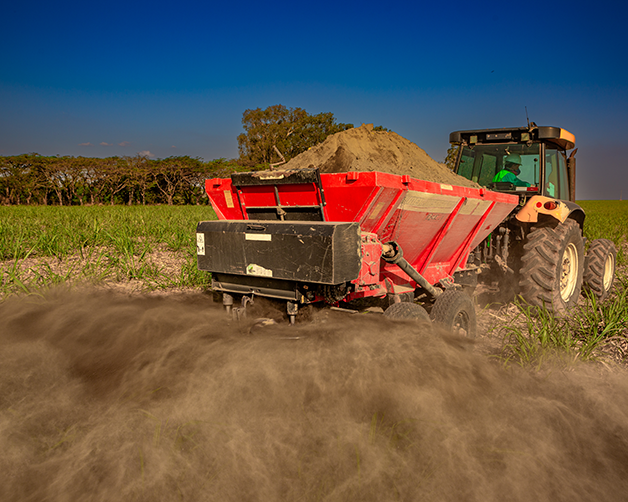Why Enhanced Rock Weathering is a Crucial Carbon Removal Method
Whilst emissions reduction is a pressing concern, Carbon Dioxide Removal requires urgent investment, research and development to meet future climate goals.
Enhanced Rock Weathering (ERW) at a glance
Rock weathering is a natural process that gradually removes CO2 from the atmosphere on timescales of hundreds of thousands to millions of years. As part of nature’s portfolio of carbon removal mechanisms, rock weathering has regulated the Earth’s temperature throughout geological history, and maintained the habitability of the planet. Moreover, the supply of nutrients and ions from rocks has been essential for the evolution and sustenance of life on land and in the ocean.
Through grinding and spreading the right rocks on farmland, ERW accelerates this natural process from millions of years to less than a decade, removing CO2 from the atmosphere on human relevant timescales and providing important co-benefits for local and global environments.

We do this in the tropics because here weathering is especially efficient which leads to the highest carbon removal potential globally.

Silicate Rock Particles
Rock weathering regulates temperature through the consumption of carbon dioxide, where atmospheric CO2 dissolved in rainwater is removed during rock dissolution.
Stable Bicarbonates
In rainwater, CO2 is present as carbonic acid. By dissolving rocks with this acid, the CO2 is transformed into a stable dissolved phase called bicarbonate.
Nutrient Rich Soils
Soils are regenerated as a result of the nutrient addition from the fresh rock minerals, supporting restoration of ecosystems and the production of healthy produce.
Ocean Alkalinity
The bicarbonate is transferred through groundwaters and rivers to the ocean where it is stored potentially for tens of thousands of years, also reducing ocean acidification.
Science Advisory Board
InPlanet is a science-first organisation and aims to be rigorous and transparent in its commitment to the monitoring, reporting and verification of carbon removal. In December 2023, we launched our Science Advisory Board to ensure oversight of our scientific strategy. Our Science Board members are leading academics from the field of enhanced rock weathering and they independently provide direction and advice. We are always open to collaboration on scientific topics so if you have an idea, please get in touch!
Get In TouchOur Rigorous Measurement Approach
At InPlanet we are dedicated to scientific integrity and research, measuring a broad range of direct and indirect parameters, in different physical components of the system, that may be used to quantify carbon dioxide removal (CDR) or understand weathering reactions. This includes tracking weathering elements such as cations and metals, organic and inorganic carbon products and secondary measures like pH. We examine the rock powders, soils, soil waters, vegetation and gases to gain comprehensive insights into weathering processes.

Get in touch
Connect with a member of our team to learn how InPlanet can help you achieve your climate strategy.
13414-018 Piracicaba, SP - Brazil
80939 München - Germany





